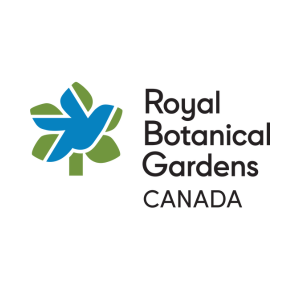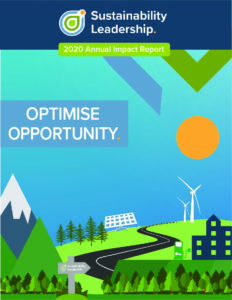Royal Botanical Gardens
Member Profile.
Member Profile
Royal Botanical Gardens (RBG) is the largest botanical garden in Canada and one of the largest in the world, with over 2,700 acres of cultivated gardens and nature sanctuaries. Wrapped around the western tip of Lake Ontario, these extraordinary properties include some of the most biodiverse land in Canada, with a major proportion of the property lying within the Niagara Escarpment World Biosphere Reserve.
RBG is a National Historic Site of Canada for its breathtaking landscapes and major horticultural collections, and is well-known for its educational and conservation programs, holding many awards for its efforts in biodiversity conservation and habitat restoration.

Sustainability Leadership Program Updates
Annual Impact Report 2022
RBG is committed to managing its own environmental performance and improving its sustainability. As pandemic restrictions were lifted, we saw increased emissions in 2022 due to increased operations. The increased emissions were specifically due to having more staff and visitors in our buildings during the year, increased number of special events especially in the winter months to attract people back to RBG, and the need to utilize an additional greenhouse for propagation during the year.
Despite the increase, RBG made significant strides to reduce emissions during the year, such as purchasing an electric fleet vehicle and installing solar powered lights at Princess Point.
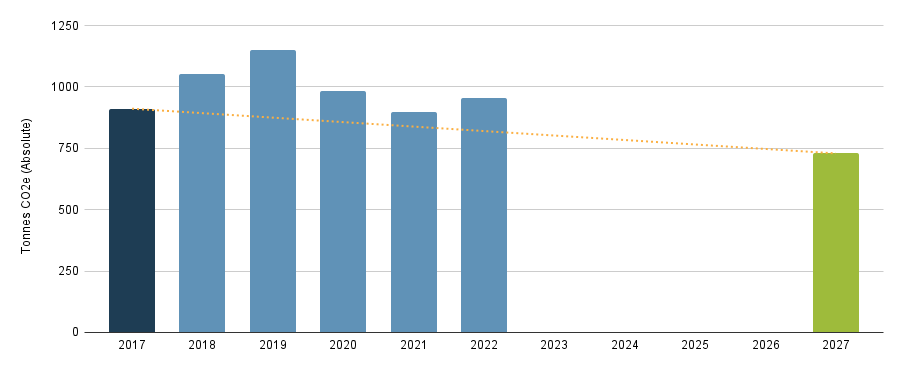
Annual Impact Report 2021
Despite the disruption and operational challenges posed by COVID-19 in 2020, RBG was still able to move forward with several sustainability initiatives that helped reduce our energy consumption. These included HVAC equipment upgrades, acquisition of our first fully electric fleet vehicle, and installation of an off-grid solar energy system on our Boathouse near the Arboretum.
While these initiatives account for some of our decreased greenhouse gas emissions between 2019 and 2020, we expect this is also in part due to our reduced operations as some facilities were closed for portions of the year. There’s much to look forward to going forward as sustainability is very much embedded in our new 25-Year Master Plan, which was approved in 2020.2021 was our first year where our greenhouse gas emissions fell below our 2017 baseline. Several projects over the year contributed to this reduction. Our new (2020) natural gas boilers at RBG Centre and our Propagation Greenhouse had their first full year of operation in 2021, resulting in reduced natural gas consumption. In the late summer of 2021, we purchased a number of electric landscaping tools as part of an effort to reduce our gasoline and diesel consumption. Improvements were made in Hendrie Park to expand existing electrical infrastructure so that generators would no longer be needed for future events. In 2021 we did not use generators for any of our events in Hendrie Park.
We suspect some of the reduction in our greenhouse gas emissions could be attributed to closures and reduced operations that occurred as a result of covid-19, as we suspected was also the case in 2020.

Annual Impact Report 2020
Despite the disruption and operational challenges posed by COVID-19 in 2020, RBG was still able to move forward with several sustainability initiatives that helped reduce our energy consumption. These included HVAC equipment upgrades, acquisition of our first fully electric fleet vehicle, and installation of an off-grid solar energy system on our Boathouse near the Arboretum.
While these initiatives account for some of our decreased greenhouse gas emissions between 2019 and 2020, we expect this is also in part due to our reduced operations as some facilities were closed for portions of the year. There’s much to look forward to going forward as sustainability is very much embedded in our new 25-Year Master Plan, which was approved in 2020.
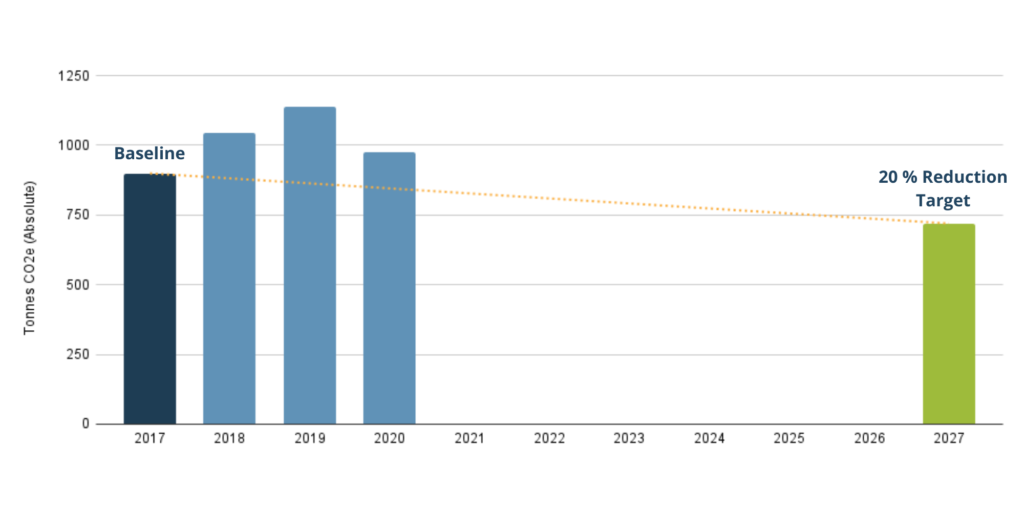
Annual Impact Report 2019
RBG is committed to managing its own environmental performance and improving its sustainability. Under its present strategic plan (2014-2019), RBG is monitoring and managing its energy use, water consumption, greenhouse gas emissions, and waste generation throughout the organization.
Since 2017 RBG has overhauled its waste diversion program, set a greenhouse gas reduction target and began to establish a rigorous water monitoring and conservation program. In 2019 RBG created its Climate Change Resiliency Plan, expanding the focus of our sustainability efforts to also include climate change adaptation and mitigation.


Annual Business Report 2018- 2019
2018 was our first year reporting our greenhouse gas emissions against our 2017 baseline emissions. While we facilitated operational changes and initiatives to reduce energy consumption in some areas, overall our emissions increased. We worked with SHB and Mohawk on two CEL projects throughout the year.
Students from Mohawk College’s Environmental Technician program completed Waste Audits on three garden areas to measure the impact of our new waste diversion program. Electrical Engineering Technology Students completed a feasibility assessment of using renewable energy to operate our Fishway operation (used to restrict the number of invasive fish species in Cootes Paradise).
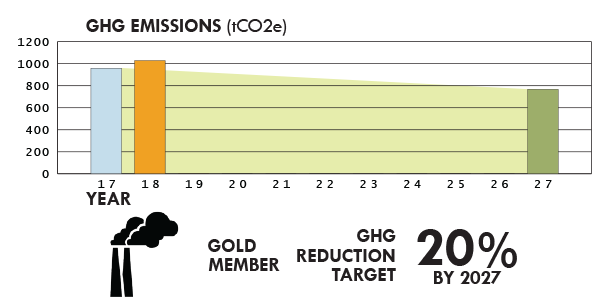
2018-2019 Profile
RBG‘s new earth kind, chemical free Rose Garden, located in Hendrie Park, was designed and installed using research proven techniques to provide maximum landscape energy and materials conservation based on real world operational effectiveness and environmental responsibility.
In 2018, we partnered with the Friends of the Greenbelt Foundation to create a public report on “gardening in a changing climate”. You can find the factsheet and full report on the Greenbelt website.
On-going energy savings practices took place at RBG throughout the year including an HVAC system upgrade at RBG Centre and small scale LED lighting retrofits across multiple facilities.


